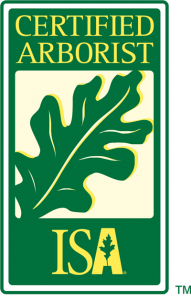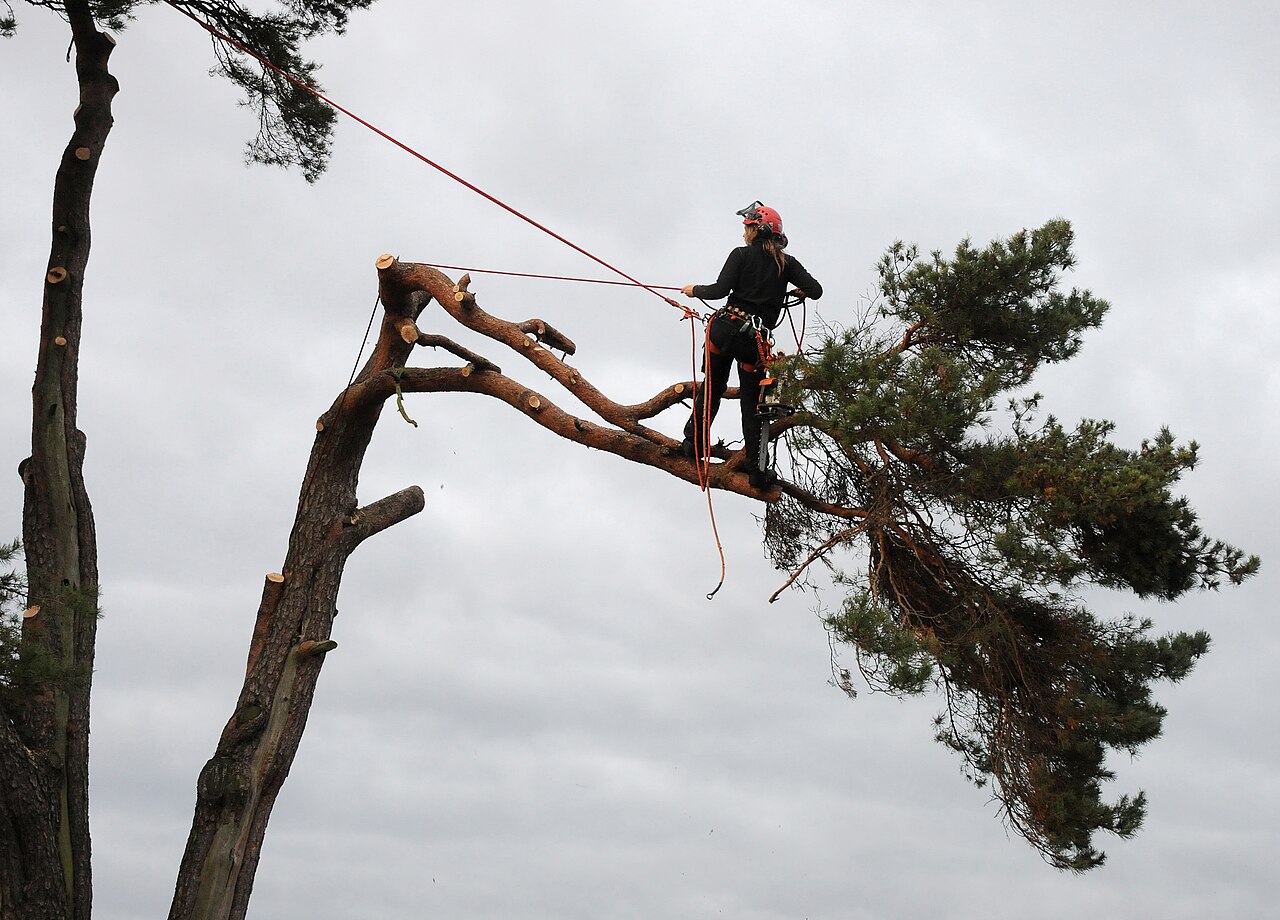Arborists, Professional Credentials, and Designating Bodies

The Merriam-Webster dictionary defines arboriculture as “the cultivation of trees and shrubs especially for ornamental purposes” (2019a) and arborists as the specialists that care for those trees (2019b). In the US there are two primary certifications for arborists. Arborists can become a Registered Consulting Arborist (RCA) through the American Society of Consulting Arborists (ASCA) (ASCA, 2019a) and/or become an International Society of Arboriculture (ISA) Certified Arborist (ISA, 2019a). The ISA also offers a range of associated certifications, including ISA Certified Arborist Utility Specialist, Arborist Municipal Specialist, Tree Worker Climber Specialist, Tree Worker Aerial Lift Specialist, Board Certified Master Arborist, and ISA Tree Risk Assessment Qualification. For the sake brevity, the focus of this post will be on the flagship programs from each organization, ASCA’s Registered Consulting Arborist and the ISA Certified Arborist credentials.
Relevance for Gardeners
Many gardeners who have trees are likely familiar with arborists, or at least with a local “tree guy”. While trees are beautiful, they can also suffer from disease, nutrient deficiencies, and other plant health issues. In addition, trees often require maintenance and pruning to ensure safety, avoid damage to houses or other property from falling branches, or to allow more light through the tree canopy to reach the ground and garden. Maintenance and pruning of trees requires experience and expertise to ensure that trees aren’t damaged in the process, and that pruning is done safely. When their services are needed, hiring an arborist with professional credentials can be an excellent way to ensure that trees are properly cared for and that nobody is hurt in the process.
In my personal experience, certified arborists in my community charge more per hour. However, the extra cost in exchange for ensuring the 60 year old pin oak that is the same age as my house lives on for another 60 years is worth it.
Other Considerations in Choosing an Arborist
Whether an arborist is certified or not, it is a good idea to check that the arborist is insured. That is because if they or one of their crew is injured on your property, you as the property owner may be liable for any injuries that occur while tending to the trees on your property.
Also, as with hiring any professional for home repairs or improvements, it’s important to check their references or get recommendations from colleagues and friends. You should also check whether your local government has any regulations on tree management within city limits. If so, be sure that who you hire has experience with following those regulations, and has all of the business registrations and approval from the local government.
It is also important what your needs are. If you need a large specimen tree pruned and the potential for tree injury or death would be devastating, then hiring someone with documented expertise is important. If you’re instead just trying to get the half-dead tree in the back yard chopped down and there’s no risk of falling a tree onto a power line or structure, then documented expertise might be less important (though insurance might be, see above).
In addition, if you are getting a large tree taken down, consider the value of the wood in your tree. Large hardwood trees may have significant value. Some tree guys will offer to take it down for free in exchange for the wood. While this may sound like a good deal, I know people who were shorted thousands of dollars from such transactions when considering the value of the wood and the per hour cost of an arborist.

Type of Credential: Professional Certificate
Both the RCA and ISA Certified Arborist credentials are considered professional certificates. This means that these are optional credentials. Arborists are not required by law to be certified. This means that an arborist can operate without certification. Arborists that are certified have had their credentials reviewed, and meet or abide by the criteria described below.
Education and Professional Experience Requirements
Registered Consulting Arborists must be a current ASCA member, and be a graduate of the ASCA’s Consulting Academy (ASCA, 2019b). No additional education or work experience is required.
ISA Certified Arborist must have three or more years of experience in arboriculture and/or a degree in the field of arboriculture, horticulture, landscape architecture, or forestry from an accredited institution of higher education (ISA, 2019b).
Qualifying Exams
Registered Consulting Arborists must pass an open-book exam as part of the ASCA’s Consulting Academy, which also includes other assignments before, during, and after the academy (ASCA, 2019c).
ISA Certified Arborists must pass a qualifying exam (ISA, 2018).
Code of Ethics
The ISA Certified Arborist program has a code of ethics that all certified arborists must abide by (ISA, 2019c). The RCA program does not have a code of ethics.
Continuing Education
Registered Consulting Arborists must complete 420 continuing education units (CEUs) to be eligible for the RCA credential (ASCA, 2019b). Their website does not specify if additional CEUs are required in order to maintain the RCA credential.
ISA Certified Arborists are required to complete 30 CEUs in a three-year period in order to maintain their certification (ISA, 2019d).
References
ASCA. 2019a. The RCA. American Society of Consulting Arborists. https://www.asca-consultants.org/page/RCA (accessed 25 September 2019).
ASCA. 2019b. Eligibility/Fees. American Society of Consulting Arborists. https://www.asca-consultants.org/page/EligibilityFeesRCAs (accessed 25 September 2019).
ASCA. 2019c. ASCA’s Consulting Academy. American Society of Consulting Arborists. https://www.asca-consultants.org/page/ConsultingAcademy (accessed 25 September 2019).
ISA. 2018. ISA Certified Arborist Application Guide. https://www.isa-arbor.com/Portals/0/Assets/PDF/Certification-Applications/cert-Application-Certified-Arborist.pdf.
ISA. 2019a. Types of Credentials. International Society of Arboriculture. https://www.isa-arbor.com/Credentials/Which-Credential-is-Right-for-You (accessed 25 September 2019).
ISA. 2019b. ISA Certified Arborist. International Society of Arboriculture. https://www.isa-arbor.com/Credentials/Types-of-Credentials/ISA-Certified-Arborist (accessed 25 September 2019).
ISA. 2019c. Code of Ethics. International Society of Arboriculture. https://www.isa-arbor.com/Credentials/ISA-Ethics-and-Integrity/Code-of-Ethics (accessed 25 September 2019).
ISA. 2019d. Maintaining Credentials. International Society of Arboriculture. https://www.isa-arbor.com/Credentials/Maintaining-Credentials (accessed 25 September 2019).
Merriam-Webster. 2019a. Definition of Arboriculture. Merriam-Webster. https://www.merriam-webster.com/dictionary/arboriculture (accessed 25 September 2019).
Merriam-Webster. 2019b. Definition of Arborist. Merriam-Webster. https://www.merriam-webster.com/dictionary/arborist (accessed 25 September 2019).
In the article, you state, “Registered Consulting Arborists must be a current ASCA member, and be a graduate of the ASCA’s Consulting Academy (ASCA, 2019b). No additional education or work experience is required.” That is a bit misleading. In order to pursue the RCA, you must be a qualified ASCA member. From the ASCA website:
To be an ASCA member, you must have at least five years of experience in arboriculture plus one of the following educational requirements:
Possess a four-year degree in arboriculture or a closely
related field, such as urban forestry, horticulture,
plant pathology, entomology, forestry, or plant
biology.
Be a Board Certified Master Arborist.
Have a minimum of 240 approved CEUs.
Therefore,foundationally, there are considerable educational and work experience requirements for an RCA. These requirements also apply to every qualified member of ASCA. Therefore, if an arborist is a verified ASCA member, and not an RCA, he or she will have met those requirements, as well as considerable CEU requirements.
For tree care, the ISA Certified Arborist credential serves as a distinction for home and property owners to distinguish those in the industry who have proven knowledge of the science and safety behind the services you need.